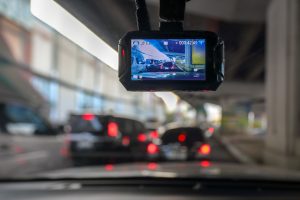In today’s digital age, video evidence has become increasingly crucial in DUI cases throughout Florida. As a Fort Lauderdale DUI defense attorney for over two decades, I’ve seen how police dashcam and bodycam footage can dramatically impact the outcome of DUI prosecutions. This technology presents both opportunities and challenges for defendants, and understanding its implications is essential for anyone facing DUI charges in Broward County.
The Double-Edged Sword of Video Evidence
Video footage often reveals crucial details that can strengthen a defense case in ways that written police reports simply cannot capture. Dashcam and bodycam footage can be used to demonstrate:
- Improper traffic stops. Florida law requires reasonable suspicion for a traffic stop under Terry v. Ohio and its progeny. Video evidence may show that officers lacked adequate justification for the initial stop, potentially leading to suppression of all evidence under the exclusionary rule.
- Field sobriety test irregularities. The National Highway Traffic Safety Administration (NHTSA) has established standardized protocols for field sobriety tests. Video often reveals that officers deviated from these protocols, administered tests on uneven surfaces, or failed to provide proper instructions — all factors that can undermine the reliability of these tests.
- Contradictions in police testimony. Officers’ courtroom testimony sometimes differs from what video evidence shows. In State v. Meador, 674 So. 2d 826 (Fla. 4th DCA 1996), Florida’s Fourth District Court of Appeal emphasized the importance of objective evidence in evaluating officer credibility.
- Normal Driving Patterns. Dashcam footage from the defendant’s vehicle or nearby traffic cameras sometimes shows normal driving behavior that contradicts police claims of erratic driving or impairment indicators.
- Physical Coordination.: Bodycam footage may actually demonstrate that a defendant exhibited better balance, coordination, and cognitive function than described in police reports.
On the flip side, video evidence isn’t always favorable. Prosecutors frequently use officers’ footage to support their cases. Video evidence may show:
- Clear Signs of Impairment. Slurred speech, bloodshot eyes, difficulty following instructions, or obvious balance issues captured on camera can be compelling evidence of impairment.
- Admission of Alcohol Consumption. Many defendants make spontaneous statements about drinking that are captured on bodycam footage, which can be used against them at trial.
- Failed Field Sobriety Tests. When properly administered and recorded, failed field sobriety tests can provide strong evidence of impairment.
- Dangerous Driving Behavior. Dashcam footage showing weaving, speeding, or other traffic violations can support the prosecution’s case for impairment.
To Record or Not to Record
Just as officers may record interactions during traffic stops or other police encounters, suspects, defendants and members of the public may do the same. The First Amendment protects the right to record officers in public, as established in Gilk v. Cunniffe, decided in 2011 by the U.S. Court of Appeals for the First Circuit. This principle has been consistently applied by Florida courts as well.
Recording police interactions on your cell phone during a DUI investigation can provide several advantages. Among these: Continue reading
 Fort Lauderdale Criminal Attorney Blog
Fort Lauderdale Criminal Attorney Blog


